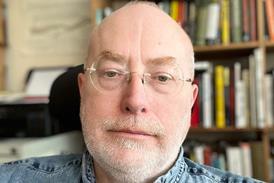This week: Jeremy Hunt
Why he matters: England’s longest serving health secretary has made the surprise move to become the new chair of the House of Commons health select committee.
What Care Quality Commission rating would Jeremy Hunt give his successor Matt Hancock?
The new health committee chair is too savvy to bite, but his diplomatic answer has the sort of sting in the tail the government will have to get used to.
”Matt is doing exactly the right thing in focusing on technology. [However], he will discover, as I discovered, that having a bright idea about how to make the NHS better is the easy bit; executing that idea is much tougher.”
“I still have the scars on my back from failing to deliver the 5,000 extra GPs I promised,” reflects Mr Hunt on the new government’s pledge to deliver 50,000 extra nurses to staff the 40 new hospitals that constitute its second big promise.
“I [also] know from my own experience that getting capital projects going is really hard, so 40 hospitals is highly ambitious,” he adds.
“The government has raised expectations that the extra money going in really will relieve pressure on the NHS and let it turn a corner after 10 years of austerity. [But] that ambition needs a lot more thinking and imagination before we and they will know if their ambitions can be achieved.”
Mr Hunt sees increasing capacity as the greatest single challenge facing the health and social care system over the rest of this Parliament.
“You can have [the] argument, as people often do in HSJ, as to whether a £20bn real-terms increase [in NHS funding over the course of this Parliament] is enough. But that is a significant amount of new money and it will take the UK into [the] top quartile of GDP per capita health spenders in the OECD (we’re mid-table now).
“The one thing I wish I’d known at the start of my time as health secretary is that it’s never just about the money; it’s about capacity. You can put extra billions in, but without the extra doctors and nurses being trained and available to hire, that will not relieve the pressure.
“The NHS People Plan is the most important NHS document of the year, and I think we’ll need to see an independent assessment of the workforce training need for these next 10 years, and then to know that the government has a clear commitment to training that number. I would worry greatly if the training budget suffered from the 5 per cent departmental budget cuts that the chancellor has asked for, as we know that training budgets fall outside the NHS guaranteed funding area.”
Fund social care to save the NHS
Mr Hunt says his experience means “I should be able to move the debate on the NHS to a much more practical and less party-political level. I want Parliament to have proper debates about system capacity to deliver the aspirations we have for the NHS.”
The government’s huge, in relative terms, majority means it has the opportunity to address difficult issues.
As well as the legislative changes proposed to speed integrated care, Mr Hunt mentions the proposed reforms to the civil justice system that would reduce the ability of victims to bring tort litigation or to limit the damages they can receive.
“Tort reforms would help the NHS to move from a litigation culture to a learning culture,” says Mr Hunt.
The mother of all difficult issues is, of course, social care reform. The prime minister said in his first speech on the steps of 10 Downing Street that “we will fix the crisis in social care once and for all with a clear plan”. No such plan exists, does it?
Mr Hunt raises an eyebrow and says, while he is hoping for the best, “it’s not yet apparent for social care that the government will put its money where its mouth is”.
He adds: “What I’m looking for more than anything is a significant increase in the ability of local authorities to fund core adult social care requirements. Unless we fund that, we’ll condemn the NHS to an endless cycle of winter crises. That core increase in local authorities’ spending power, however it is delivered, is to me absolutely critical for the NHS. Without that change, more vulnerable older people will end up in NHS hospitals and [accident and emergency departments] will continue to fall over year in, year out”.
It was during Mr Hunt’s time as health secretary that the death knell for the NHS’ internal market began to toll. However, he believes the NHS must proceed with caution as it works out what will replace it.
“We all agree on the need for integrated care, especially for old people with complex care needs, and all agree that the NHS structures we have now are very piecemeal and make it hard to do integrated care packages.
“I strongly support the move to ICSs… and if we have to move statutory structures to make that easier, then fine. There are many things in the 2012 Act I would have changed, of which the first would have been to make [clinical commissioning groups] coterminous with local authorities, to enable joint health and social care commissioning. Those kinds of things [are] possible now.”
Loony Tory ideology
He continues: “My only word of caution is to remember why the internal market was set up. It was not about loony right-wing Tory ideology, but about real concern that the system [should be] set up in the best interests of suppliers and not consumers, [and that it was] open to the innovation and efficiencies that you sometimes get in the independent sector.
“If we’re not using market mechanisms for that, we have to find other ways. Some of that started with the CQC regime, which now effectively rates NHS, third sector and private providers [and holds] them to account. The innovations of the best NHS organisations like Western Sussex and Salford Royal get copied. We’ll need similar transparency in the ICSs to avoid local monopolies atrophying.”
This will mean supplementing the expanding role of the CQC, he claims.
“CQC’s role is to identify best practice, and I think their inspection regime is good at spotting problems and bringing them to light, much more so than in the Mid Staffs era. But that’s not the only way [to improve care]. We need to make sure we drive innovation where we can by putting power into patients’ hands — accessing your health records on your iPhone [for example] can put people in the driving seat.”
It will surprise few to hear Mr Hunt say he is most “proud” of the patient safety reforms he put in place following the Mid Staffs, Morecambe Bay and Southern Health care scandals.
“The NHS today is more transparent than ever before about failures in care, and patient safety has moved right up the agenda.”
However, he adds: “We’ve started that journey, but I’m the first to say that it’s not complete and there’s a lot more to be done.
“The Paterson case shows that the independent sector is not as transparent and is not taking patient safety issues as seriously as the NHS has come to do. And people [in the NHS] find that it’s still too hard to speak out when there is an incident of unsafe care [whether involving themselves or a colleague].
“Even after the Francis public inquiry, there is still a very defensive culture, with NHS staff worried about lawyers, the GMC and the NMC. We need to get to the point where the system becomes open [enough] to learn from mistakes.”
Maternity safety, he says, remains one of his biggest concerns.
“When I was health secretary, every week I used to sign off around two multimillion-pound settlements to families with babies who’d been disabled for life by maternity safety incidents. That number does not seem to go down.”
My biggest mistake
Surprisingly, Mr Hunt says his greatest failure was also linked to patient safety.
“In the junior doctors’ strike, I failed to get the patient safety message across to the junior doctor workforce. For me, [the new contract] was about [improving] patient safety. They thought it was an attempt to cut their pay and make them work more at weekends, when they are the staff who work more at weekends than most NHS staff. With the benefit of hindsight, I can see that my message could have been communicated better.”
What CQC rating would Mr Hunt give himself as health secretary? “Mmm. An interesting question — we will need more time to be able to assess that. In any job like that one, you want to ask yourself five years on, what changed for the better and what did not, and did you make changes that stood the test of time.”
Mr Hunt famously changed his mind on Brexit, from campaigning against it as health secretary to claiming he was the man to get the job done when bidding to become prime minister — even saying he would contemplate a no-deal scenario if negotiations failed.
How bad does he think such an outcome would be for the NHS?
“I think Matt Hancock and [Sir] Simon Stevens have done a very good job in preparing to ensure continuity of medicine supply. In practice, both sides have strong incentives to ensure there is a free flow of medicines in both directions. I’m not wanting to take that for granted, but I would anticipate us being able to resolve that.
“If there were no EU trade deal, the main impact would be on the supply of EU labour, which is very important for the NHS and particularly with our training gap [which means] we can’t quickly increase domestic training to supply to the level we need. So the increased workforce pressure would not be good.”
If there is any political or influential figure you would like HSJ to interview, please email alastair.mclellan@wilmingtonhealthcare.com.
The past five Bedpans
Lib Dem health spokesperson Munira Wilson MP
Centre for Policy Studies chief executive Robert Colvile
Politcial strategist John McTernan
Prime minister May and the NHS
You can read all 50 Bedpans here


























8 Readers' comments